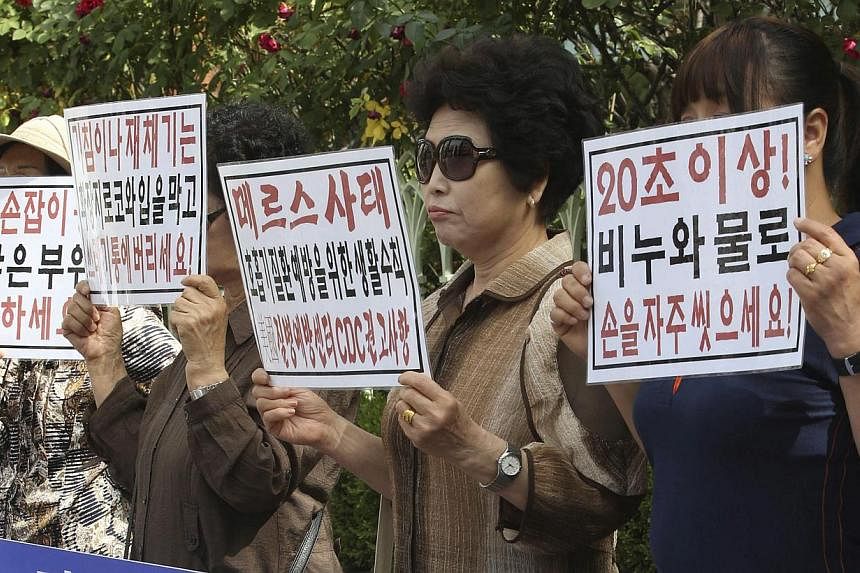SEOUL (BLOOMBERG) - South Korea said the number of confirmed cases of Middle East Respiratory Syndrome (Mers) rose to 18, as the country's health minister warned that this week will be critical to contain the spread of the virus.
"We judge that the coming one week will be the turning point of whether Mers spreads or calms," Yonhap News cited Health and Welfare Minister Moon Hyung Pyo as saying on Monday at an emergency meeting with South Korea's ruling party.
The government said on Sunday that it would form a Mers task force including experts in the private sector. People who had close contact with confirmed cases will be isolated and monitored for 14 days, with those showing symptoms provided with immediate treatment, the health ministry said.
China's official Xinhua News Agency accused South Korea of "bungling" its response after a man who was supposed to be in quarantine travelled to China via Hong Kong last week.
"Lack of understanding among the individuals and medical staff over the fatal contagion risk triggered the spread of Mers fears from South Korea to China," Xinhua said in a commentary.
The coronavirus from the Arabian peninsula has infected more than 1,100 people and killed more than 400 worldwide, with most in the Middle East. The virus doesn't seem to pass easily from person to person unless there is close contact and there is still no evidence of sustained human-to- human transmission, the World Health Organisation has said.
The virus can lead to severe illness including respiratory failure, or even septic shock. There is no vaccine or cure.

